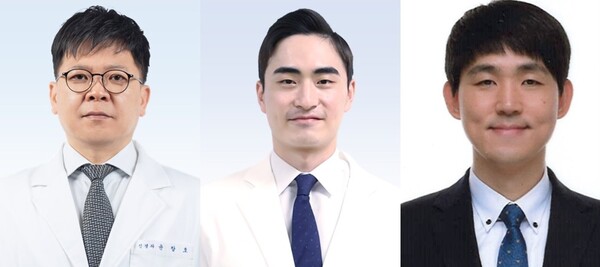Researchers from Seoul National University Bundang Hospital (SNUBH) and Korea University have explored the potential of dynamic binaural beat technology to alleviate insomnia and enhance sleep quality.

Sleep disorders, which involve disruptions in the normal sleep cycle and insufficient restorative sleep, affect a large portion of the population. These disorders can lead to daytime drowsiness, chronic fatigue, and decreased concentration, and they increase the risk of conditions such as depression, myocardial infarction, stroke, and dementia.
Recent researches show that 60 percent of Korean adults experience chronic sleep discomfort, with about half of these individuals who have insomnia. This suggests that nearly a third of the adult population (around 36 million people) are at risk of insomnia. Despite this prevalence, only about 720,000 people sought medical treatment for insomnia in 2022, pointing to a lack of awareness and the limitations of current treatment methods, such as cognitive-behavioral therapy and medication.
In response, the research team, led by Professors Yun Chang-ho and Lee Woo-jin of the Department of Neurology at SNUBH and Hwang Han-jeong of the Department of Electronics and Information Engineering at Korea University, focused on dynamic binaural beat technology, which induces specific brain waves by delivering different frequencies to each ear.
The study applied dynamic binaural beats, where the frequency difference changes continuously, to assess their impact on insomnia and sleep quality.
The study employed a randomized crossover design, polysomnography, and biometric analysis to evaluate the technology's effectiveness.
Results showed that dynamic binaural beats significantly reduced sleep onset latency by 51 percent and increased overall sleep efficiency by 3.8 percent. Additionally, low-frequency heart rate variability, an indicator of sympathetic nervous system activity and a major factor in insomnia decreased by approximately 25 percent, suggesting a more relaxed and sleep-conducive state.
"Insomnia patients often struggle with falling asleep, known as sleep onset," Professor Yun said. "Our findings confirm that dynamic binaural beats can significantly improve this aspect of sleep without causing discomfort or inconvenience, highlighting its potential as a new treatment for sleep disorders."
Professor Hwang said, "Having confirmed the effectiveness of dynamic binaural beats, the next challenge is to optimize the frequency, volume, timing, and duration to suit individual users better and enhance the treatment's effectiveness."
The study results were published in the journal Sleep.
Related articles
- SNUBH hosts Global Nursing Leadership Academy for Chinese nursing managers, expanding international healthcare collaboration
- SNUBH launches remote ICU system to support hospitals in Gyeonggi Province
- SNUBH's study on microplastics' impact on pregnancy selected for national research program
- SNUBH and Kyung Hee researchers develop predictive model for cervical cancer radiotherapy needs
- Nearly 50% of Koreans experience moderate to high chronic embitterment: study
- Asleep’s AI-powered sleep apnea screening app now prescribed at SNUBH

